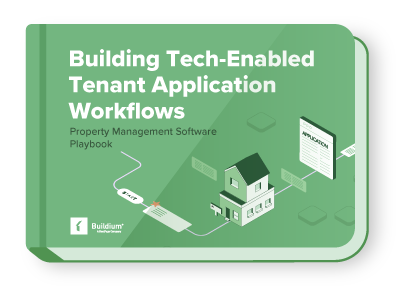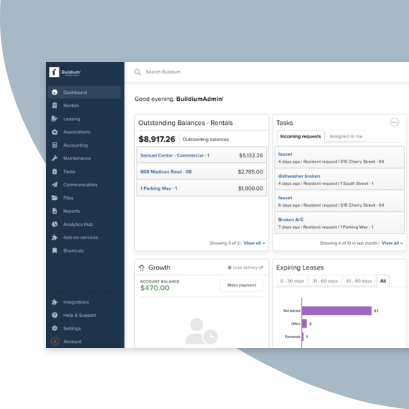Disclaimer: This blog post is meant for informational purposes only and does not constitute legal advice. Consult with a licensed attorney in New Hampshire for specific legal guidance.
Whether you’re a seasoned property manager in New Hampshire or a first-time landlord, having a clear, comprehensive lease agreement will both protect your interests and potentially save you hours of communication time.
In this post, we break down everything you need to know about crafting a solid New Hampshire lease in 2025 and the different state-specific laws to be aware of.
We’ve also created a free New Hampshire lease agreement template you can download at the top of this post to help you get started.
What Is a New Hampshire Lease Agreement?
A New Hampshire lease agreement is a written contract that lays out the terms of a rental arrangement between a landlord (or property manager) and a tenant. It covers everything from rent and occupancy limits to who handles repairs.
This agreement matters because it sets expectations, protects both sides, and can be enforced if one party breaks the terms. For property managers, it’s a reliable tool for keeping operations organized and avoiding unnecessary headaches. A lease is more than just a formality. It’s a legally binding document that outlines everyone’s responsibilities from day one.
Who Needs a New Hampshire Lease Agreement?
Anyone renting out a residential property in New Hampshire should use a lease agreement. That includes independent landlords, property managers, and leasing companies. Tenants benefit from it, too. It gives them a clear picture of what’s expected during the rental period.
In New Hampshire, the law requires leases longer than a year to be in writing and signed by both parties. But even for shorter stays, written agreements help avoid confusion and protect everyone involved.
Using a New Hampshire lease agreement helps landlords and property managers avoid problems down the road, from payment disputes to property damage. It also protects tenants by clearly stating their rights. Without a lease in place, both sides risk misunderstandings, lost income, and potential legal issues.
Pro Tip: Buildium’s purpose-built leasing software can help you get even more efficient with your leasing process.
Types of New Hampshire Lease Agreements
Not all rental agreements are the same. Depending on the situation, property managers in New Hampshire can use different lease types to match the needs of the rental and tenant. Here’s a quick overview:
- Fixed-Term Lease Agreement: Typically used for fixed-term rentals—often 12 months. It includes detailed terms about rent, maintenance, and responsibilities.
- Month-to-Month Lease Agreement: Renews every month until one party ends it. This option works well when tenants need flexibility or if a long-term lease has ended but the tenant wants to stay temporarily.
- Sublease Agreement: A tenant rents part or all of the space to another person. The original tenant still holds responsibility for the property and the lease terms.
- Roommate Agreement: Used when tenants share a space. It spells out who pays what, how household duties are divided, and what areas are shared or private.
Each type serves a different purpose, and using the right one helps property managers stay organized and legally compliant.
What Should a New Hampshire Lease Agreement Include?
Every solid lease shares a few important components. These key sections help set the ground rules, document agreements, and keep everyone on the same page.
Parties Involved
The lease should clearly identify the landlord, property management company (if applicable), and tenant. Be sure to include full contact information for each party. This makes it easier to send notices, handle maintenance requests, and keep records straight.
Lease Duration Dates
Make it clear how long the lease lasts. Is it a short-term arrangement, such as a six-month stay? Or a longer commitment, such as a one-year rental? Either way, the lease should include:
- Start and end dates
- Rent amount and when it’s due
- Accepted payment methods (bank transfer, check, online portal, etc.)
- Any late fees and when they apply
- Rules for renewing or changing the lease
Being specific about timing and payment helps prevent misunderstandings later on.
Rent and Security Deposit Information
This section gets into the financial details. The lease should outline the rent amount, due date, and how tenants should pay. If there are late fees, include when they kick in and how much they cost.
Security deposits are also part of this section. New Hampshire has rules about how much landlords can collect, when they must return it, and what happens if there are damages or unpaid rent. We’ll get into those details in a later section. For now, be sure that the lease spells out:
- The amount of the deposit
- Where the money is held
- Conditions for withholding part or all of the deposit
- How and when it will be returned
When everyone understands how money is handled, it reduces conflict and builds trust.
Occupancy Limits
To avoid surprises, the lease should list who’s allowed to live in the rental. Generally, only the named tenants and their children can occupy the space.
This rule keeps things manageable and helps property managers avoid situations where long-term visitors become unofficial tenants. If someone not listed in the lease moves in permanently, the landlord may have grounds for eviction.
Property Management Company & Tenant Responsibilities
Both parties have responsibilities. For property management companies, common tasks include:
- Keeping the property safe and livable
- Maintaining plumbing, heating, and electrical systems
- Managing garbage removal
- Taking care of common areas
Tenants are expected to:
- Use appliances and fixtures responsibly
- Keep their unit reasonably clean
- Avoid disruptive behavior
- Report needed repairs
To avoid issues later, include any property-specific rules that apply, such as snow removal responsibilities or smoking restrictions.
Pet Policies
Some properties welcome pets. Others don’t. Either way, the lease should say so clearly.
If pets are allowed, include:
- What kinds of animals are permitted
- Limits on pet size or number of pets
- Any extra cleaning or damage fees
If the building has a no-pets policy, make that clear, too. Also, specify that tenants are responsible for cleaning up after their animals and paying for any damage they cause.
New Hampshire Lease Agreement Addenda and Disclosures
Leases in New Hampshire must include certain addenda and disclosures. These documents help renters understand their rights and give landlords legal protection. This list is not exhaustive, so consult a legal professional if you’re unsure about what to include in your own agreements.
Lead-Based Paint Disclosure
If the rental was built before 1978, federal law requires a lead-based paint disclosure. This rule exists to reduce health risks, especially to children and pregnant women.
Landlords must:
- Include a signed lead-based paint disclosure form
- Give tenants the EPA booklet “Protect Your Family from Lead in Your Home”
- Share any reports or findings about lead hazards
This step isn’t optional. Skipping it can lead to steep penalties.
Security Deposit Receipt
According to RSA 540-A:6(I)(b), landlords need to give tenants a receipt for their security deposit—unless the payment was made by check.
If a tenant pays with cash or another method, the landlord must issue a receipt that lists:
- The amount received
- The name of the bank or financial institution holding the deposit
This record helps avoid disputes and keeps things transparent.
Move-In Checklist
New Hampshire law, under RSA 540-A:6(I)(c), requires landlords to inform tenants (in writing) that they have the right to complete a move-in checklist within five days of moving in.
The checklist lets tenants document:
- Existing damage
- Needed repairs
- General condition of the unit
Tenants aren’t required to fill it out, but landlords must let them know they can. It’s a helpful way to avoid arguments over damages when the lease ends.
New Hampshire Lease Agreement Laws and Regulations
New Hampshire’s landlord-tenant laws shape how leases are written and enforced. Property managers need to stay on top of these regulations to protect their business and keep leases enforceable.
Security Deposits
Under RSA 540-A:6, landlords in New Hampshire can’t ask for more than:
- One month’s rent, or
- $100—whichever is greater
The deposit must be returned within 30 days of the lease ending. If any deductions are made. New Hampshire also requires a written, itemized list of damages or charges.
If a landlord wrongfully withholds part or all of a deposit, the tenant may be entitled to twice the amount withheld as a penalty.
Right of Entry
RSA 540-A:3 says landlords must give reasonable notice before entering a rental unit, though it doesn’t define exactly how much notice is required.
Landlords can enter without notice only in emergencies, such as:
- Fire
- Water leaks or flooding
- Urgent repairs needed to protect health or safety
It’s a good idea to include specifics about entry notice in the lease itself—many property managers use a 24-hour rule to keep things consistent.
Grace Period
There’s no statutory grace period in New Hampshire for rent payments. Rent is late the day after it’s due, based on what’s written in the lease.
That means landlords can start collection efforts or file for eviction as soon as the rent deadline passes. Including a brief grace period in the lease is optional—but if you do, make it clear.
Late Fees
New Hampshire doesn’t set limits on late fees, but courts may reject fees that are unreasonable or excessive.
The lease should include:
- When the late fee applies
- The amount charged
- How it’s calculated
Keeping this section clear and fair helps landlords enforce the rules and avoid legal trouble. Remember to speak with a local legal professional for the most complete and detailed list of regulations.
Taking the Next Steps with Your New Hampshire Lease Agreement
A well-written New Hampshire lease agreement helps landlords, tenants, and property managers work together with less confusion and fewer disputes. When everyone knows what to expect, the entire rental experience can run smoothly.
Want to skip the guesswork and get your leases off to the right start in less time? Consider testing out Buildium’s comprehensive property management software. You can give it a try with a 14-day free trial or by signing up for a guided demo.


